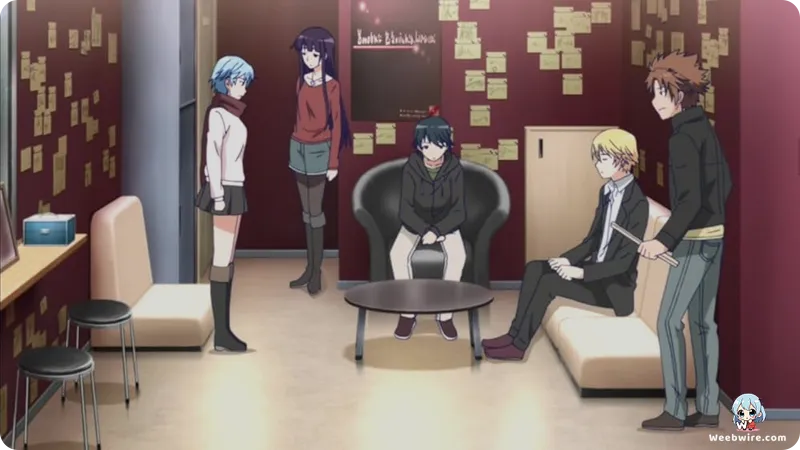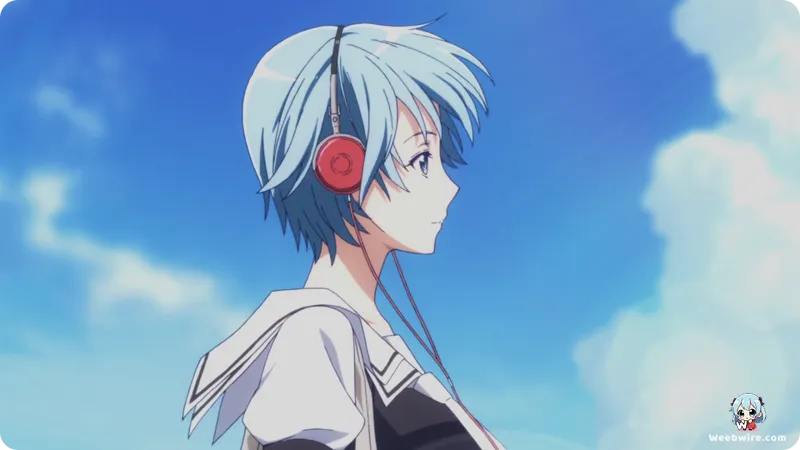Fuuka Anime's Bold Divergence: A Melodic Journey Forging Its Own Path

In the dynamic world of anime adaptations, where fidelity to source material is often paramount, the 2017 series Fuuka stands as a compelling outlier. It charts an audacious and entirely distinct narrative course from its manga counterpart. This bold divergence created a viewing experience unlike any other, sparking enduring debate and offering fans a fascinating "what if" within the rich universe crafted by manga maestro Kouji Seo. Beyond its pivotal plot twist, Fuuka is interwoven with intriguing connections and behind-the-scenes insights that cement its status as a standout in the romance and music genre.
The Heart of Music and Romance
At its heart, Fuuka is a vibrant, music-infused romance, chronicling the journey of the bashful and introverted Yu Haruna. His move to Tokyo dramatically intertwines his life with the spirited and captivating Fuuka Akitsuki. Their initial, often awkward encounters, frequently fueled by misunderstandings and Yu's social media habits, soon ignite a shared passion for music. This burgeoning passion culminates in the formation of a band, first known as "Fallen Moon" and later reborn as "Blue Wells." Here, Yu, shedding his initial reluctance, discovers his voice as a bassist and lyricist.
The anime truly shines in its depiction of the band's evolution, from their humble garage beginnings to commanding larger stages. The original songs are far more than mere background elements; they are integral to the plot, powerfully echoing the characters' deepest emotions, struggles, and triumphs. Stellar vocal performances by the voice cast, including Saori Hayami as Fuuka Akitsuki and Yūsuke Kobayashi as Yu Haruna, infuse the musical aspect of the show with an authentic and electrifying energy.

A Legacy in the Seo-verse
Crucially, Fuuka is not an isolated tale but a profound spiritual and direct continuation within Kouji Seo's acclaimed interconnected universe. It serves as a sequel to his earlier works, Suzuka and Kimi no Iru Machi (A Town Where You Live). The titular character, Fuuka Akitsuki, is revealed to be the daughter of Suzuka's protagonists, Yamato Akitsuki and Suzuka Asahina. This familial lineage establishes a deep legacy, allowing long-time Seo fans to witness the unfolding of a beloved family saga. The anime masterfully integrates these connections, enriching the narrative for those immersed in the broader 'Seo-verse' while remaining perfectly accessible to new viewers. Fuuka Akitsuki's very existence as a legacy character sets the stage for a story steeped in romantic heritage, yet one that quickly forges its own unique rhythm.
The Anime's Bold Divergence
However, the most significant and defining aspect of the Fuuka anime's legacy is its radical departure from the manga's storyline. In Kouji Seo's original manga, a tragic and pivotal event unfolds early on, drastically altering the narrative's trajectory and casting a much darker, more somber tone over Yu's journey. This event, concerning the fate of Fuuka Akitsuki herself, forms a cornerstone of the manga's emotional weight, exploring themes of grief, resilience, and moving forward. Astonishingly, studio diomedéa, responsible for the anime's production, made the unprecedented decision to completely sidestep this tragic plot point. Instead, the anime meticulously crafted an alternative narrative, allowing Fuuka Akitsuki to continue her journey alongside Yu and the band, exploring a different path for their relationships and musical ambitions.
Impact and Implications of the Creative Choice
This deliberate divergence was a monumental creative choice, eliciting powerful reactions from both dedicated manga readers and anime-only viewers. For manga enthusiasts, it was a shocking deviation from a cherished, albeit heartbreaking, storyline, prompting widespread curiosity and, at times, criticism regarding the anime's navigation without such a crucial plot device. For those encountering the story solely through the anime, it unfolded as a compelling, emotionally charged music-romance drama, unaware of the profound alterations made. This decision by diomedéa and the production committee effectively birthed two distinct versions of Fuuka, each offering a unique exploration of its characters and themes. The anime's choice fostered a more optimistic, perhaps even idealized, continuation of the band's story and its romantic entanglements, emphasizing the triumph of their musical journey and burgeoning love, unburdened by the shadow of profound loss.
The implications of this narrative shift were extensive, redefining character roles and emotional arcs within the anime. This creative liberty underscores a fascinating facet of the adaptation process: the capacity for a new medium to reinterpret and reimagine a story, offering an alternative experience to its audience. While some adaptations face criticism for their unfaithfulness, Fuuka's divergence is frequently lauded as a courageous, if controversial, endeavor to provide a different emotional journey. One that bypasses the intense heartbreak of the original, instead leaning into the transformative power of music and blossoming love as its primary drivers.
A Memorable Adaptation
Ultimately, Fuuka remains a captivating series, celebrated for its passionate storytelling, evocative musical performances, and its singular position in the pantheon of anime adaptations. Whether one gravitates towards the manga's raw emotional intensity or the anime's more hopeful melody, there is no denying that Fuuka presents a rich tapestry of narrative choices and character development. It serves as an exemplary case study for how adaptations can forge their own identity, surprising audiences and cementing its place as a memorable title, not merely for its engaging story, but for the bold creative decisions that shaped its on-screen existence.
Credits
Fuuka
Author
Kouji Seo
Cover Art
Kouji Seo
Studio
diomedéa
Publisher
Kodansha
Producers





